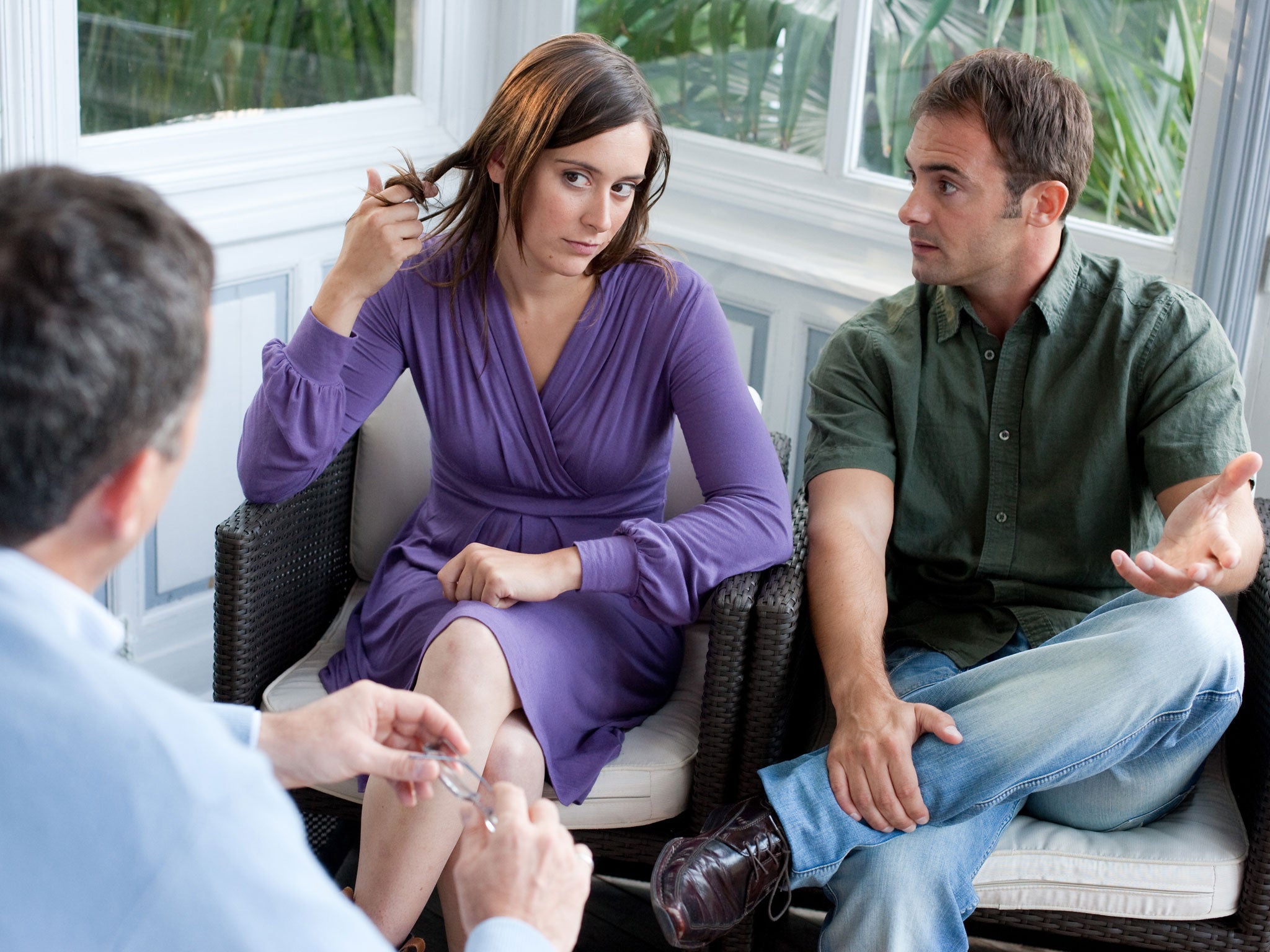Relationship OCD ‘may be damaging your sex life’ – and therapy could simply make it worse
New study has serious implications for those receiving relationship counselling

Your support helps us to tell the story
From reproductive rights to climate change to Big Tech, The Independent is on the ground when the story is developing. Whether it's investigating the financials of Elon Musk's pro-Trump PAC or producing our latest documentary, 'The A Word', which shines a light on the American women fighting for reproductive rights, we know how important it is to parse out the facts from the messaging.
At such a critical moment in US history, we need reporters on the ground. Your donation allows us to keep sending journalists to speak to both sides of the story.
The Independent is trusted by Americans across the entire political spectrum. And unlike many other quality news outlets, we choose not to lock Americans out of our reporting and analysis with paywalls. We believe quality journalism should be available to everyone, paid for by those who can afford it.
Your support makes all the difference.People who worry about whether their partners love them – or whether they love their partner – could be having a damaging impact on their own sex lives, a scientific study suggests.
Those who question their love-life, thinking about whether they would be happier with someone else or requiring repeated reassurances from their other half, may simply be experiencing a natural level of insecurity.
But when these worries start to have an impact on everyday life, particularly on someone’s ability to do their job, it could mean they are suffering from a condition known as “relationship obsessive-compulsive disorder” (ROCD).
Now a report published in the peer-reviewed Journal of Sexual Medicine has suggested a link between the symptoms of ROCD and a less-than-satisfactory sex life, according to Live Science.
The findings could have serious implications for the way relationship councillors and therapists deal with couples suffering from problems in the bedroom, the researchers said.
“ROCD symptoms are often overlooked by family and couple therapists,” said study researcher Guy Doron, of the School of Psychology at the Interdisciplinary Center (IDC) Herzliya in Israel.
ROCD is a form of obsessive-compulsive disorder where the compulsions, like constantly asking whether a partner “really means it” when they express love, can end up fulfilling the insecure obsessions and drive the partner away.
Doron’s study presented an online questionnaire intended to assess ROCD symptoms to 157 men and women in Israel, with people who had been in relationships for an average of 15 years.
While Doron estimated that only 1 per cent of the participants might be diagnosed with ROCD based on their responses, the results showed that the more severe participants' symptoms were, the more likely the participants were to be unsatisfied with their sex lives.
The researchers said that their work suggested it may actually be better for people showing ROCD symptoms to have these symptoms treated before entering couples therapy for sexual and relationship problems.
Steven Brodsky, a psychologist and clinical director at the OCD and Panic Center of New York and New Jersey, told Live Science that regular counselling techniques could actually worsen symptoms for ROCD sufferers.
“If you were to begin to really analyse issues within the relationship, you would be helping the OCD sufferer to [have] a compulsion, and you would be perpetuating or worsening the OCD,” Brodsky said.
Instead, people with ROCD should receive treatment for OCD. The goal of such treatment is “to help the person develop a greater tolerance for ambiguity or bothersome thoughts,” Brodsky said.
Join our commenting forum
Join thought-provoking conversations, follow other Independent readers and see their replies
Comments